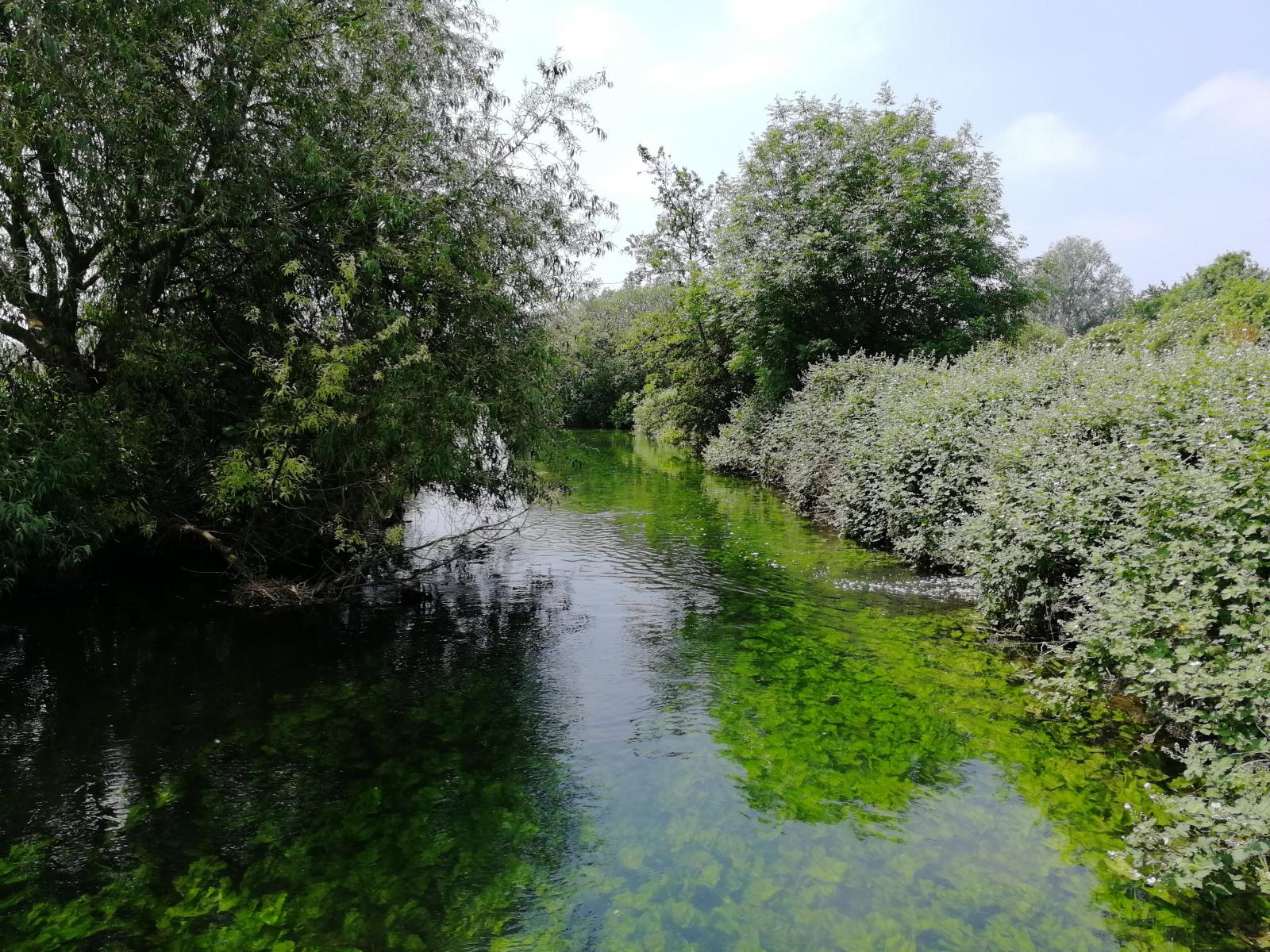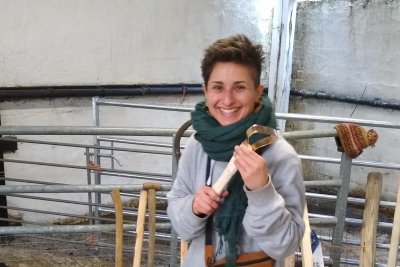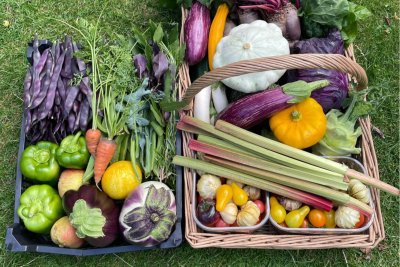Blogs • Sustainable Farming Campaign
Should farming redefine what is meant by productivity?
Productivity in farming is largely used to refer to the amount of yield that a farm produces per hectare or input. This relatively narrow view leaves out a much wider range of services that farms can deliver and should be paid for. How and why can redefining productivity in farming help shift systems and mindsets?

When thinking about a farm business, what might fit under a redefined meaning of productivity that includes publicly desirable outputs? Farm diversity springs to mind and alongside the production of food, it could include:
- Delivering climate mitigation and adaptation;
- Supporting biodiversity;
- Having cleaner water and air leave the farm;
- Providing education and public access;
- Providing mental and physical health and wellbeing spaces; and,
- Creating good quality and secure jobs and livelihoods.
Many farms already provide some of these services, but often for free or through a government funded scheme that only aims to cover the costs (but regularly doesn’t achieve this). Providing these goods should not become a money-maker as such, but if we want farms to deliver more of them, they need to be fairly rewarded and paid (whether through public or private money) in a way that also allows these goods to be accessible for all people.
Why? Because these goods and services are some of the most vital to society and they also interlink with each other. And because we need a resilient and healthy farming sector that is better prepared and able to deal with future climate, environmental and economic shocks. But also, because redefining what is meant by productivity could help shift farming down the route of delivering for people and the planet. If we keep seeing yields only as the priority, we are going to struggle to support the farming sector towards more agroecological ways of managing land.
Many moons ago, I once heard a farmer make an interesting point about delivering environmental outcomes. I’m paraphrasing, but he essentially asked how can farmers be expected to do good for the environment when they are under paid and struggling with debt? The price of food quickly becomes a complex and controversial topic, but we need to find clever ways to address that elephant in the room, if it doesn’t impact on improving accessibility to healthier food for all people.
How can farmers and citizens change the way we define productivity and value the range of public goods that farms can deliver?
Firstly, we can use the public purse and this is what, in Engand, Defra intend to keep on doing through the Environmental Land Management schemes (ELMs). Yet the schemes they are designing could be beset with barriers and complications. I’ve heard many farmers say that when you run the numbers, the environmental and animal welfare payments initially on offer do not stack up economically. A recent report by the National Audit Office also highlighted some of the pitfalls that need to be rapidly addressed by Defra before full ELMs roll out.
Secondly, we could use public procurement in a way that creates opportunities for environmentally-friendly, good animal welfare, small and medium sized farms to access those contracts. We know that diversifying markets is an important way to create a more resilient farm business and public procurement could create a stable and viable market for SMEs. There are clear opportunities and pilots exist for such an approach. If local authorities are given appropriate budgets, they can use these opportunities to get healthy and sustainable food to people through hospitals, schools, care homes and other publicly run services.
Thirdly, there needs to be a shift away from the dominance of a handful of supermarkets and large scale processors, manufacturers and wholesalers from controlling the market. They regularly use unfair trading practices to squeeze and under-pay producers and smaller suppliers via contracts and payments, and have arguably been a driving force in making farming an unviable sector, economically. Furthermore, they clearly contribute to the degradation of ecosystems and the environment by forcing farmers into unsustainable practices.
This shift needs to move towards more farmer-focused supply chains and markets like box schemes, independent retailers, ethical supermarkets and wholesalers, food hubs and farmers’ markets.
What can a different meaning of productivity look like?
A common view of small-scale agroecological farming is that it is unproductive or 'low yielding' in terms of the amount of food produced. However, a recent study suggests that the opposite is true both in terms of food production and amount of biodiversity supported. The outputs will be different, more diverse foods (as a result of the need for more rotations for instance) and some will be public goods that sometimes need to be paid for by the public purse.
We believe that more public and private money needs to flow into supporting farmers towards agroecological farming to support the transiton and pay for benefits. We know that sustainable agroecological forms of managing land can deliver more ecosystem services like cleaner water and air, carbon sequestration and storage, reduce flood risk and provide greater landscape beauty and heritage. Some of those things which should also fit into the meaning of productivity.
Rock Farm, in West Sussex, is a great example of a small farm that is achieving this. The 6-acre farm produces vegetables, fruits, salads and herbs through an agroecological farming system (e.g. no synthetic inputs, diverse rotations, focus on soil and biodiversity health). They run outdoor therapeutic sessions for vulnerable and marginalised people in communities local to the site. They have also started to provide small areas of land and their knowledge and experience, alongside accessing affordable finance, to help new farm start-ups. The farm staff are all paid the living wage and people living locally are offered volunteering opportunities to build skills. Alongside a fruit and veg box scheme, they also started a new farmers’ market in Brighton and Hove which has helped other food businesses connect with their local customer base. This enterprise is delivering a vast array of goods and services which often aren't part of the productivity paradigm within agriculture.
On a slightly larger scale, but still small for farming, Pipers Farm is also aiming to achieve similar outcomes and benefits with both their farm and the online shop. The farm is managed in a way that prioritises nature, climate, soil, rearing rare and native livestock breeds, and animal welfare, and the online shop supports roughly 30 local farms who also manage their land and animals in an agroecological way by coordinating marketing. They also commit to ensuring that they pay their suppliers fairly and provide good-quality and well-paid local jobs, so that local communities and projects are supported. Again, another great examples of a farm business that is delivering on multiple fronts.
These are just two example of how productivity can be redefined in farming. Indicators of a productive farm must include the climate, nature, health, jobs and other goods and services that can be delivered alongside food. If this paradigm can shift, it could help farmers and growers financially, socially and environmentally.
Published Thursday 30 September 2021
Sustainable Farming Campaign: Sustain encourages integration of sustainable food and farming into local, regional and national government policies.





